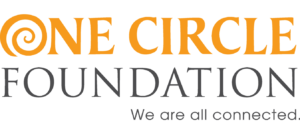The Council for Boys and Young Men® Research
To read more about how these strategies provide a culturally responsive, trauma-informed approach to working with boys and young men, read more (PDF).

CDC Study
Evaluation and Outcomes
The first study, in 2008, involved five organizations and 93 total participants, in middle schools, diversion programs, and probation. The study found:
Significant increases in boys' School Engagement. Self-efficacy related to Educational Goals and Avoiding Fights, Ethnic Pride and Conflict Skills were moving in the expected direction after 10 weeks.
Satisfaction Surveys revealed high satisfaction on average of participants in The Council programs.
View the Evaluation Poster or Phase One Final Report.
This study of The Council within the Ohio Department of Youth Services correctional settings in 2009-2010 found no changes in comparison of experimental and control groups. On careful analysis, however, the study detected significant demographic differences and pre-survey differences between groups such that a true comparison of changes was effectively more difficult to demonstrate.
View The Council Phase II Evaluation Final Report.
Another analysis of this study looked at The Council’s impact on Masculinity Beliefs for Diverse Youth in a Correctional Setting. The report showed that while traditional masculinity beliefs, strongly associated to risk behaviors, increased for all youth in the prison setting, those who participated in The Council programs for more weeks showed:
Significantly lower rates of increase in unhealthy beliefs about being male. This is important because of the apparent impact of The Council to slow the trend toward the limiting “boy code” – don’t feel, be tough, dominate others, always be in control, never express fear, etc.- that affects boys’ behaviors, relationships, and futures.
View the Brief Description of this report. View this Full report on masculinity beliefs and The Council.
Other data:
We welcome data reports from outside organizations!
OPBI is a nonprofit organization in Tampa, FL, which implemented The Council program to boys in middle schools, within classroom settings. They saw significant increases in boys’ school adjustment, and decreases in aggression rates. View OPBI’s 2007-2008 data summary.
Evaluate The Council at Your Agency
The Council for Boys and Young Men® Evaluation Tool Kit is available at no charge for your program evaluation! Includes instructions, forms, and public domain scales as well as author-permitted scales for The Council program evaluation. The scales are recommended by the Centers for Disease Control (CDC), Center for Substance Abuse Prevention (CSAP), National Center for School Engagement, and scholars interested in measuring boys' attitudes and behaviors, especially related to risk and protective behaviors associated with violence prevention, substance abuse prevention, and interpersonal skills.
For further information about research and evaluation of your Council program, please contact us at info@onecirclefoundation.org or call us at (415) 419-5119.
